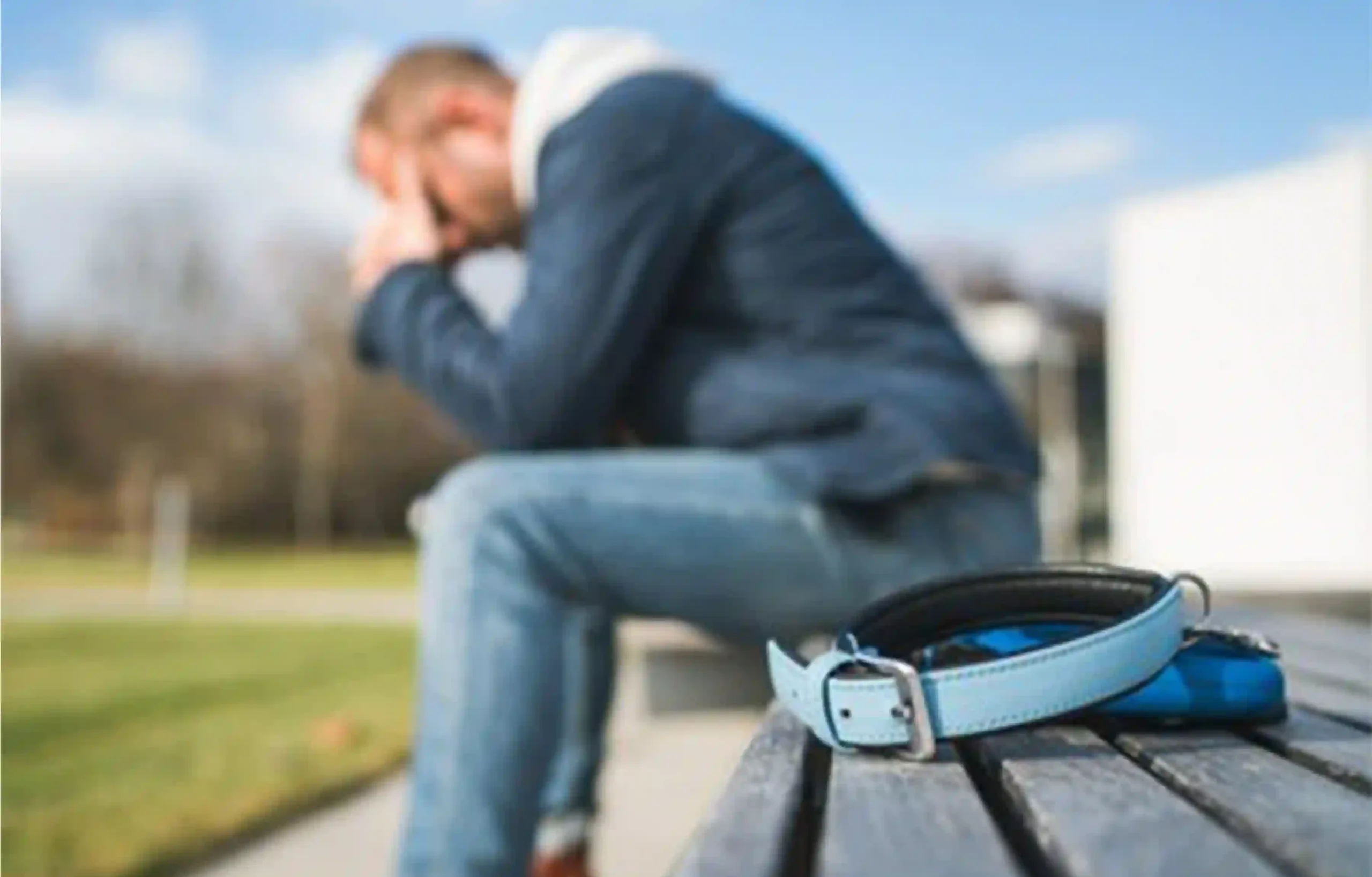Understanding Grief vs. Depression After Losing a Dog
What Does Normal Grief After Losing a Dog Look Like?
Common Signs of Healthy Grieving
Emotional waves: You have good days and bad days. The pain isn't constant.
Physical responses: Tightness in your chest, fatigue, or loss of appetite (these should improve after a few weeks).
Behavior changes: Avoiding the dog park at first, or feeling emotional when seeing their empty bed.
Memory triggers: Crying when finding their favorite toy or hearing their name.
Guilt thoughts: "Maybe I should have taken him to the vet sooner" (these thoughts usually fade with time).
When Grief Becomes Depression: Warning Signs
Key Differences Between Grief and Depression
| Grief | Depression |
|---|---|
| Sadness comes in waves | Constant, unrelenting despair |
| Can still enjoy some activities | Loss of pleasure in everything |
| Maintains hope for the future | Feels like the pain will never end |
| Lasts weeks to months | Persists beyond 2 months with no improvement |
Danger Signs You Shouldn't Ignore
Sleep extremes: Sleeping all day or not sleeping at all for weeks
Social withdrawal: Avoiding all friends/family for months
Self-neglect: Not showering, skipping meals, ignoring responsibilities
Suicidal thoughts: Thinking "I can't live without my dog" in a serious way

Healing Strategies: Moving Through Grief in Healthy Ways
1. Create Physical Memorials (Helps Process the Loss)
- Make a shadow box with their collar and favorite toy
- Plant a memorial tree or flowers in their favorite yard spot
- Commission a portrait or donate to an animal shelter in their name
2. Adjust Your Routine Gradually
- If you always walked at 6 PM, replace that time with a new ritual like journaling
- Leave their water bowl out for a week if it helps, then put it away when ready
- Visit their favorite places when you feel strong enough
3. Express Your Emotions Creatively
- Write letters to your dog about what you miss
- Make a playlist of songs that remind you of them
- Start a grief Instagram account to connect with others
4. Consider Professional Help If Needed
- Pet loss support groups (many vet schools offer free ones)
- Grief counselors specializing in animal loss
- Short-term medication if depression symptoms are severe
When Is It Time for a New Dog?
There's no "right" timeline - some people heal by adopting quickly, others need years. Signs you might be ready:
- You can talk about your late dog without breaking down
- You're excited about dogs again instead of comparing them
- Your daily routine has stabilized
Remember: Getting another dog isn't replacing your lost friend - it's making space for new love.